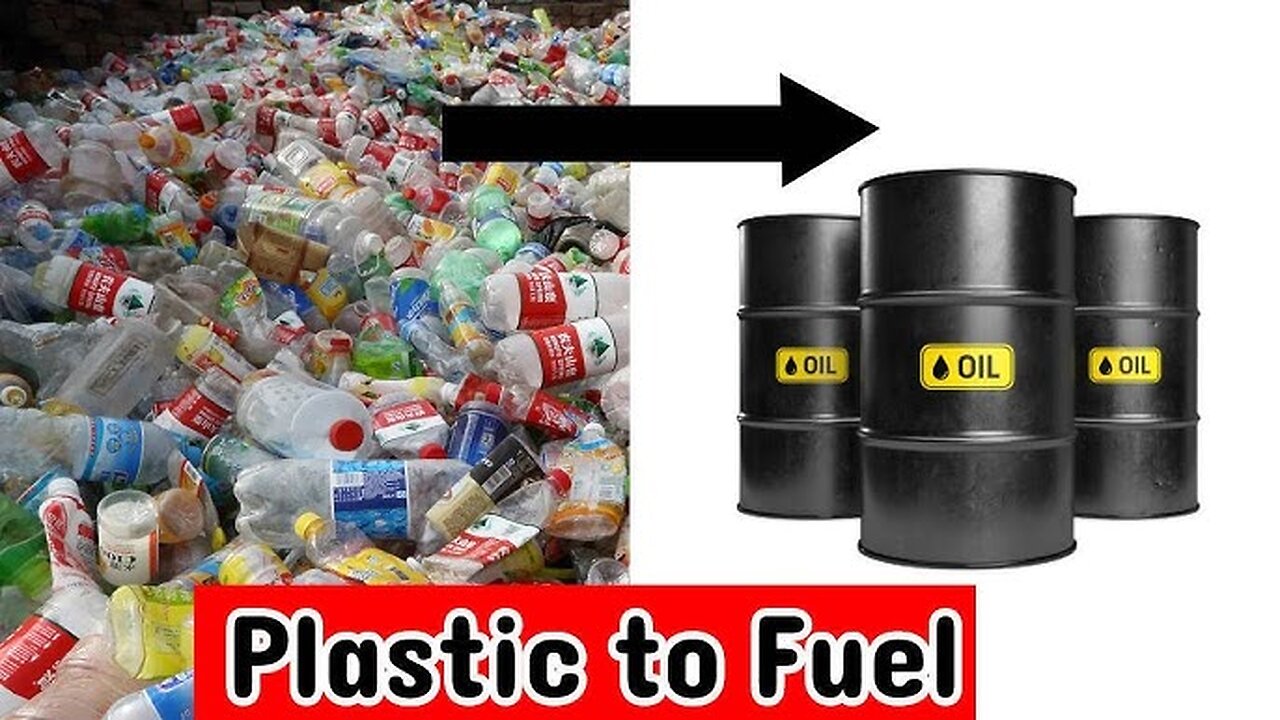Premium Only Content

Plastic Fuel- semiautomatic waste tyre(plastic)
We have produced more plastic in the last ten years than we did in the whole of the last century. Plastic takes 100 years to degrade, which means that every single piece we have not recycled still exists. Many of the plastic items we throw away can be recycled into new products -- but some types, known as 'end-of-life' plastics, currently have no second life and end up in landfill, where they can release hazardous chemicals into the environment. How to deal with these plastics is one of the most pressing questions for businesses and local authorities. Technology company Cynar is giving these waste plastics one more life by turning them into synthetic fuel at their plant in Portlaoise, Ireland. Using a process called pyrolysis, plastics are heated in an oxygen-free environment to prevent them from burning, and then broken into their component hydrocarbons to create the equivalent of a petroleum distillate. This can then be separated into different fuels. The end products are cleaner, lower in sulphur and in the case of the diesel, higher quality than regular diesel fuel. Cynar is currently able to produce 19,000 litres of fuel from 20 tonnes of waste plastic. The company plans to set up more plants across the UK, and with 15 million tonnes of plastics still going into landfill in Europe every year, they have plenty of raw materials at their disposal. Oliver Steeds of the earthrise team visits the Cynar plant in Ireland, to find out how the process works.
-
 LIVE
LIVE
LFA TV
9 hours agoLFA TV ALL DAY STREAM - FRIDAY 7/25/25
10,627 watching -
 LIVE
LIVE
Chicks On The Right
2 hours agoThe Hulkster is gone, Trump RIPS Jerome Powell TO HIS FACE, and Dems humiliate themselves
1,506 watching -
 LIVE
LIVE
Game On!
16 hours agoRIP to the LEGENDARY Hulk Hogan!
6,569 watching -
 1:44:38
1:44:38
Nick Freitas
16 hours agoHave Republicans Already Won 2026?
25K10 -
 LIVE
LIVE
The Bubba Army
22 hours agoHulk Hogan Dead at 71 | Bubba the Love Sponge® Show | 7/25/2025
3,849 watching -
 23:48
23:48
Jasmin Laine
16 hours ago“CHRISTIANS Are a Threat” Musician BANNED From Canada for MAGA Beliefs
3.11K21 -
 LIVE
LIVE
BEK TV
23 hours agoTrent Loos in the Morning 7/25/2025
305 watching -
 15:03
15:03
Dad Saves America
13 hours ago $1.41 earnedHow the Department of Education Hijacked Our Schools - Poisoning of the American Mind: Pt 3
26.7K5 -
 14:06
14:06
Silver Dragons
15 hours agoBullion Dealer Reacts to Silver Price TRIPLING in 5 Years
11.5K4 -
 28:31
28:31
Anthony Rogers
14 hours agoBOWLING FOR SOUP interview
9.04K3